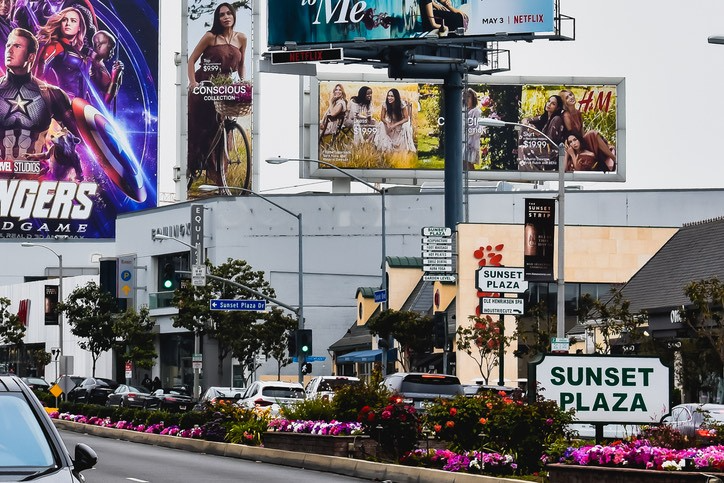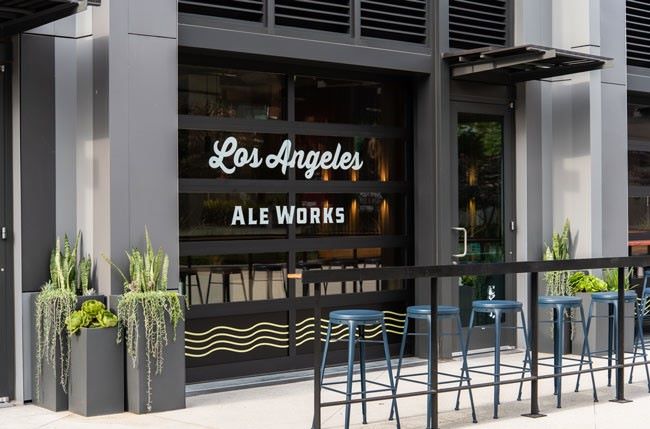On Monday, the West Hollywood City Council voted to uphold the minimum wage rate of $19.08 per hour including sick and vacation days through December 31, 2024. The wage is currently the highest minimum wage in the country.
After a lengthy discussion, the city council moved any annual minimum wage increases to January 1, 2025. The next increase would’ve gone into effect on July 1 and would have raised the wage to $19.61.
Councilmember John Heilman moved to ask city staff to come back with an ordinance change that will tie city minimum wage adjustments to the Consumer Price Index increase starting in January 2025. The motion passed 4-1. Councilmember Sepi Shyne was against any changes to the existing ordinance and voted no.
Currently, full-time employees for businesses are to be provided with at least 96 compensated hours and 80 uncompensated hours per year for sick leave, vacation, or personal necessity. Part-time employees are provided compensated and uncompensated hours in increments proportional to that accrued by someone who works 40 hours a week.
The West Hollywood Chamber of Commerce advocated at the meeting for more amendments to the existing wage standards, including a pause on the wage increase. Some business owners opposed the motion citing a decrease in foot traffic, and recent closures of businesses in the area.
“We need help. We have not rebounded from the Hollywood strike or COVID-19. Tourism is down. There is another impending Hollywood strike. Foot traffic is down significantly in our restaurants. Please do not overestimate our resilience,” Brett Latteri, owner of The Den on Sunset, wrote in email correspondence to the council. “We want to be in business, provide jobs, and serve our community, but the outlook is grim without significant change. Unfortunately, the businesses outside of a few busy blocks in the rainbow district feel overlooked and unseen by the city council when creating policies.”
Another, Michael Bezerra, owner of Fiesta Cantina said in public comment to the city council that businesses are grappling with burdens brought on by policies that “While aiming to uplift workers, are inadvertently putting strain on our local economy and jeopardizing the livelihoods of many.”
“It’s crucial to recognize that we businesses value our employees and strive to provide fair compensation. However, there must be a balance between supporting workers and ensuring the financial sustainability of businesses. We must acknowledge that we all rise and fall together—businesses, workers, and residents alike,” said Bezerra.
The chamber asked the council to eliminate a vacation accrual for part-time workers and to look at total compensation as a standard for workers who receive gratuities, which would use tip averages to adjust the minimum wages for tip-earning workers.
A recent employer and employee survey conducted by Probolsky Research regarding the impacts of the city’s Minimum Wage Ordinance showed that nearly half of business owners believe the city is on the wrong track.
“It’s a complicated, complex issue and I don’t have a lot of confidence that we’re going to come up with a solution anytime soon that helps our businesses while also serving employees,” said Councilmember Lauren Meister.
Councilmember Meister ultimately voted in favor of the council’s motion, but added, “We’re seeing an increase in retail vacancies, up 1.9 percent since the prior quarter, and I just don’t want to see any more businesses leaving our city because of this ordinance.”
“Other cities need to rise to our level and quite frankly, the reason we did 96 hours was to lead the way, so I would like to see other cities do what we are doing because we are the leader, and that’s why we chose to implement such a policy, to lead the way for every other city in America,” said Shyne.
Several union workers with Unite HERE Local 11, which represents more than 32,000 workers employed in hotels, restaurants, airports, sports arenas, and convention centers throughout Southern California, packed the council chambers to speak in favor of raising the minimum wage and protecting paid time off for part-time workers. West Hollywood has the highest minimum wage in the country.
“In 2021, West Hollywood led boldly by passing a minimum wage that is now at $19.08 hourly. Now, with the cost of living soaring, we face a new challenge. To afford a two-bedroom apartment in L.A. County and not be severely rent-burdened, one must make $40 an hour,” read a statement from Unite Here Local 11 released before the meeting.
Vice Mayor Chelsea Byers said with another increase on the immediate horizon, the council agreed that a six-month pause would demonstrate commitment to stabilizing these conditions without creating major policy implications to the greater quality of life issues we sought to address.
“No worker should have to choose between their job or taking care of themselves or their families or the vacation time they deserve,” said Byers “We also know there is still more that needs to be done to address the greater affordability challenges we experience in this region and I am eager to get back to work on those issues.”
Mayor John Erickson said, “I’m choosing the city of West Hollywood and fighting for the city. I hope everyone can join me in that and come together around this issue, rather than continuing to sow division.”
Photo by Takato Phillips on iStockphoto.com
Stay informed. Sign up for The Westside Voice Newsletter
By clicking submit, you agree to share your email address with Westside Voice. We do not sell or share your information with anyone.







